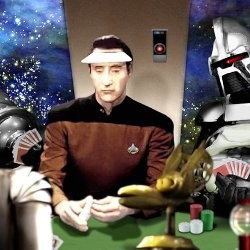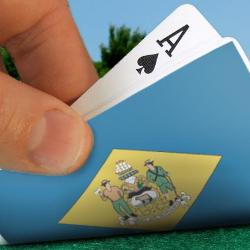Hybrid Poker Bot Unnerves Online Community

Online poker companies are very strict when it comes to the use of poker bots, with their terms of service clearly stating that the use of such unscrupulous software will not be tolerated. Party Poker, for instance, is said to employ more than 100 people tasked with identifying and shutting player accounts whose behavior looks suspiciously like that of a poker bot. The reason operators take such activity seriously is because they damage an industry that relies on people pitting their skills and wits against each other. After all, who would want to spend their money playing against a completely ruthless and fearless program that remembers your every action, and can never be tilted.
While operators have mostly been successful in tracking down poker bots, recently a new software aid has sparked a heated online debate as to what actually constitutes a bot, and what can be done to continue providing a fair playing field for recreational players and online grinders alike.
AI Software With Human Middleman
The Heads-Up Sit-N-Go (HUSNG) community is one of the most competitive groups of players in online poker, with specialists relying on their ability to recognize patterns so as to eek out small edges over their opponents. Like other poker formats, HUSNG players rely heavily on their Heads-Up Display programs (HUDs) to more readily recognize their opponent’s tendencies, but now a player by the screen name “skier_5” has developed a controversial new piece of software which appears to be a hybrid between permissible software aids, such as HUDs, and non-permissible strategy aids, such as poker bots.
While “skier_5” has insisted his creation is not a bot as “there is no automated decision software [and it is] the player that has to click the buttons, not the program”, others have been unnerved by the program, seeing it as an AI player assisted by a human middleman. Whatever the case may be, the player-aid software still represents one of the worst aspects of internet poker, and demonstrates how over the years the psychological part of poker has been replaced by sheer computerized, processing power.
Provide A Significant Advantage
While “skier_5” refuses to give specific details about his software so as to protect his edge, the programmer has struck a deal with a number of players who have been granted access to his program in return for a share of their online profits. Their results have been spectacular, too, with Skier_5 and his consortium rapidly moving up in stakes and generating profits far in excess of their usual returns.
Naturally, a concerned poker community has carefully been studying the program’s known users, with poster “He I Se N Be Rg” concluding that to all intents and purposes the software is basically a poker bot which relies on game theory to devise optimal playing strategies. As “He I Se N Be Rg” wrote on the twoplustwo forum:
“It’s clearly more than preflop charts being randomized by a computer. skier_5, AllinGirl777 & freechdogg have identical preflop, flop and even turn stats (within ~1%) of eachother over large samples.. If I had to guess, the software is capable of reading the stack sizes, hole cards and community cards. It then outputs the play (randomized ofcourse) and the human just has to follow.”
Time To Limit Third-Party Software?
Limiting the use of third-party software is not a new concept, and online poker site Bodog has pioneered efforts to make the game more attractive to recreational players by banning the use of HUDs and other tracking software. Meanwhile, most of the other main operators continue to allow such software, partly as it enables grinders to play more tables which in turn increases the sites’ bottom line, and thus allows operators to then offer greater incentives and bonuses to its players.
Another reason for not doing more to clamp down of such software is because they are notoriously difficult and expensive to police, especially if a player runs such aids via a separate computer. Trying to identify suspicious patterns in play is also fraught with difficulties, requires great effort, and ultimately may in fact prove arbitrary and unenforceable. Therefore, a better way to improve the situation may be to either remove such easily exploitable heads-up games from the poker sites’ product offering altogether, or alternatively reduce the effectiveness of such programs by adopting a similar approach to Bodog’s ‘Recreational Poker Model’, including allowing players to frequently change their screen-name. In the meantime, the industry will continue to suffer as recreational players keep busting their bankrolls at an alarming rate, and continue perceiving online poker as an uneven gaming environment.










